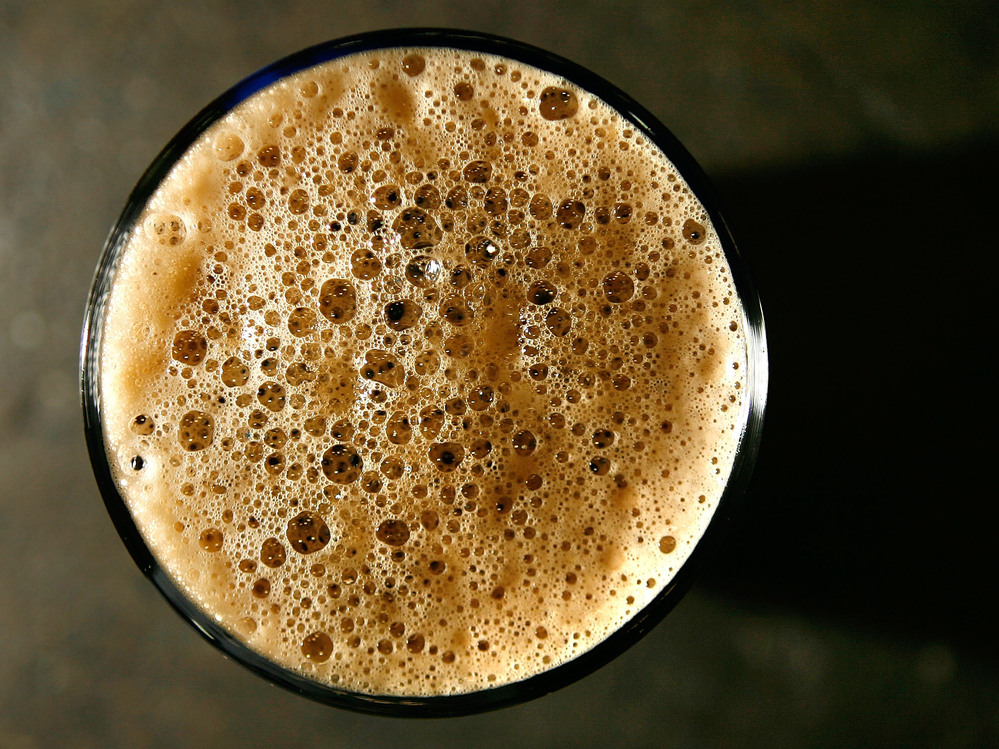 Enlarge picture i
Enlarge picture i Yeast impacts a number of facets of beer including the foam, or head, that kinds on the of the glass. If fermentation is as well vigorous, too a lot of of the foam-stabilizing proteins may possibly be misplaced.

Yeast affects various elements of beer like the foam, or head, that varieties on the of the glass. If fermentation is too vigorous, too a lot of of the foam-stabilizing proteins could be lost.
Yeast can be rather demanding minor buggers, in spite of getting unicellular microscopic organisms. Brewers know they have to appease them to get the beer they want.
" It really is yeast-strain dependent, it can be natural environment, it is temperature, oxygen levels," says Matt Brophy, brewmaster of Flying Canine Brewery in Frederick, Md. " There is a whole lot of variables that you need to have a large degree of management above."
Yeast creates hundreds of chemical compounds that can impact the beer's greatest flavor, appearance and stability. Above the centuries, humans have domesticated yeast strains with the finest traits for brewing, so that the ones brewers use these days are much additional powerful than wild yeast. It is kind of like going with a pedigreed Finest In Demonstrate at Westminster, rather than a coyote.
"We deal with cultured yeast extremely distinct strains that give us flavor profiles that we desire in our beers," Brophy says.
The Salt
Drunk On Biology For St. Patrick's Day
The Salt
Increase A Toast To Building Better Beer Bubbles Through Chemistry
Then they have to pamper the yeast with the right situations.
It gets fed wort, a sugary liquid created by steeping, roasting, and mashing barley or other grains. The wort is cooled to just the right temperature, and stirred to oxygenate it so that the yeast can develop and reproduce.
After all individuals demands have been met, the yeast starts converting basic sugars to alcohol and carbon dioxide.
Or, as a new report from the American Academy of Microbiology says, "If the Yeast Ain't Happy, Ain't No person Content."
So does this imply that brewers are essentially microbiologists?
"Yes, totally," Brophy says. "Not only do you require to understand and know about yeast overall health, viability, vitality, and all the variability that influence fermentation, but there is also the buggers that you will not want."
Ann Reid, director of the microbiology academy, says that even she was struck by "the degree to which the complete beer- producing process truly is an work to produce a thing that the yeast will be genuinely happy, with so they'll make you the beer that you want to drink."
In addition to describing the brewing process in depth and outlining the approaches in which yeast has an effect on beer's flavor, the report explores the background of brewing and variations in forms of yeast.
Some highlights:
- Yeast probably evolved the skill to develop alcohol due to the fact other microbes can not survive in it. It kills off the competition. But this also explains why fermented drinks had been common ahead of the development of water sanitation systems beer was safer to drink than the local water supply.
- The two key brewer's yeasts are ale and lager yeasts. Ale yeasts want warm temperatures for fermentation. Lager yeasts develop very well at minimal temperatures, an significant good quality for brewers in Northern Europe.
- Too minor yeast, and fermentation will consider as well extended to get started out, permitting bacteria to outcompete it. Also a lot, and the beer will lack complicated taste and aroma.
This is the newest of the Academy's reviews on microbes in our globe. "We get the sense when persons believe of microbes, they think of factors that make you sick and they feel of microbiologists as individuals who perform in the clinical laboratory at the hospital," Reid says. " It can be a great deal more varied than that."
Previous FAQ reports have queried microbiologists on oil spills, E. coli and adult vaccines.
For the yeast report, the academy had to turn to Europe for about half of their brewing gurus. " There is not a great deal of it going on in our universities," Reid says. "In Europe there are actual professors of fermentation who specialize in beer."
But regardless of the place the professionals come from, Reid says, "beer microbiologists are amid the most pleasurable of a quite fun profession."
Microbe Organics Microbe Organics Ciliate All photos are copywrited to Tim Wilson and may only be used with written permission. Contact: thegoodjob@hotmail.com Contents> Amazon.com: Customer Reviews: BUNN BXBD Velocity Brew High ... 4 stars. "Bunn BXB Coffee Maker" The Bunn BXB is an excellent coffee maker, but requires a different understanding of brewing coffee. Instead of super heating the ... Beer 2012 Texas Craft Brewers Festival Oct. 6, 2012 BEER LIST >> Special Tap List available at bottom. 115+ Texas craft brews being poured. Over 20 "imperial," "strong," "double" (as in double IPA). Nearly 20 IPAs. BYO Blogs - Recent blog posts Home This is where you can find all the blog posts throughout the site. Jan Brewer Is Your New Mark Sanford Of Unexplained Weird (Sex?) Trips Lady Governess Janice Brewer of Arizona has left her state on official business. Well, lets be fair: Grand Dame Brewer has left her state for completely ... The Bruery Dear Bruery Supporters, I regret to inform you that the decision has been made to close The Bruery Provisions in Old Towne Orange, CA. This decision comes with a ... Flavored Kombucha Brooklyn Kit Williams-Sonoma Brew your own kombucha, an ancient fermented tea-based drink that delivers a potent dose of probiotics and other healthful nutrients. This energizing, detoxifying ... Tom Long, MillerCoors CEO, asks consumers to judge brewers by the ... In response to Steve Hindy's CNN op-ed "Don't let big brewers win beer wars," which coincided with the "Craft vs. Crafty" op-ed piece by the Brewers...
No comments:
Post a Comment